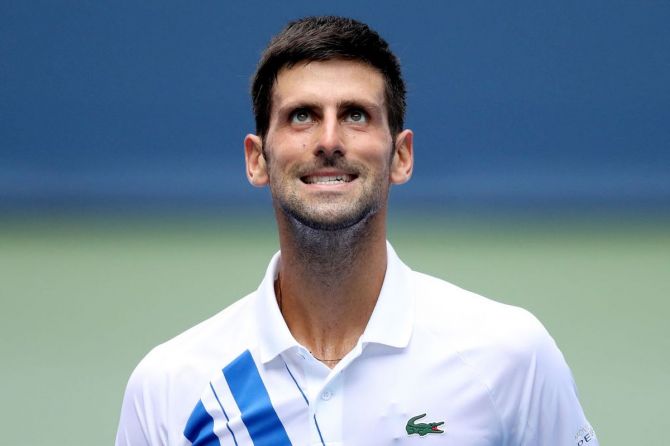Djokovic’s players body blindsided ATP player council, says Anderson

The launch of Novak Djokovic's breakaway players body just before the US Open completely blindsided the ATP player council and could undermine the structure of the men's tour, acting president Kevin Anderson told Reuters.
Djokovic sent shockwaves through the sport last month when he stepped down as head of the ATP council along with members Vasek Pospisil, John Isner and Sam Querrey and announced the formation of the Professional Tennis Players Association (PTPA).
"From the council standpoint, especially the timing, the communication, the way this came to be, it's not something we had discussed or communicated so I feel like we were blindsided by it," Anderson said in a phone interview from the United States.
"I don't agree with how they're going about it and the method. I will always respect their effort to help the players, I think that's a great thing. But that's what we've done in the council and what we continue to do."
Djokovic has described the PTPA, which has already attracted the support of more than 150 players, as a platform for the views of the athletes that can co-exist with the ATP.
Tennis governing bodies have, however, opposed the move and called for unity now that the sport has just resumed after a lengthy shutdown due to the COVID-19 pandemic.
Player council members Roger Federer and Rafael Nadal have echoed those sentiments, while some other top names in men's tennis have asked for more clarity.
Djokovic had voiced his frustration at that opposition before he was sensationally disqualified from the US Open on Sunday.
"I sort of don't agree with Djokovic's premise there on what he defines as opposition because I feel it makes it sound like we're against this idea of helping players," said Anderson.
"We're all players ourselves, we're in this together. It's really important that we stick together, because when we are united we are strongest."
The Association of Tennis Professionals (ATP) was set up by players in 1972, but its board now includes equal representation for tournament owners.
Anderson, who has played two Grand Slam finals, failed to see how the PTPA could co-exist with the ATP under the current structure.
"If we do go down this path of players wanting to have sole representation, the tournaments also are going to have sole representation," the 34-year-old said.
"And if this happens, I feel that the whole ATP structure will come apart and we will have to come up with a new structure, and we have no idea what that will look like."
The number of players pledging support for the PTPA had been "illuminating", Anderson said.
The South African accepted that issues relating to prize money and pensions have been frustrating for players but said he thought real progress had been made in the eight years he had been on the council.
"If you look at the PTPA agenda, 75%-80% of that was already being discussed at the ATP level within the council," he said.
"We have meetings with our management, we're pushing them very hard, we hear other players' voices loud and clear.
"I know the work and effort that's gone on behind the scenes to get us here, but there's still more work to be done."
New ATP chairman Andrea Gaudenzi presented a plan to the players in January addressing a number of key issues, including collective TV rights across the sport and bringing all governing bodies closer together.
"At that time the full council, including Djokovic and Pospisil, decided to give the new management time to put this plan into motion," Anderson said.
"And then at the US Open, Pospisil and Djokovic decided for their own reasons that now's the time to create this PTPA."












